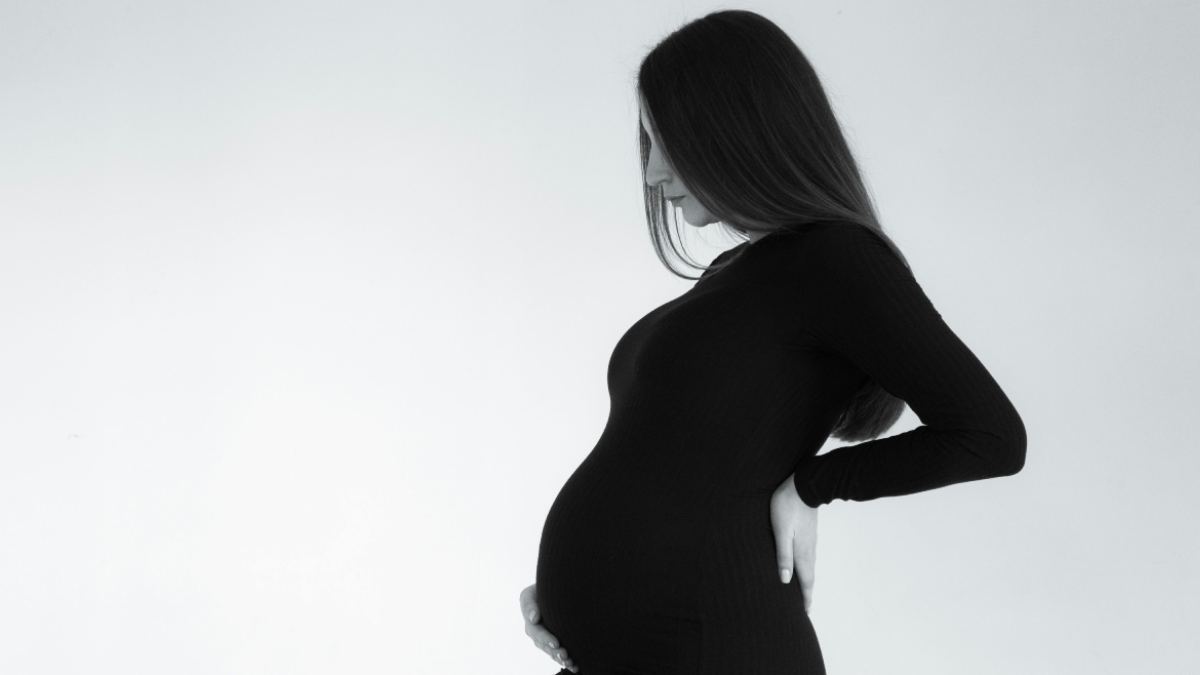
Pregnancy is a beautiful and life-changing experience, but it can also come with its share of physical discomforts. One of the most common complaints among expecting mothers is back pain. In fact, approximately 50-70% of pregnant women experience some form of back pain during their pregnancy. Let’s dive into everything you need to know about pregnancy-related back pain and how to manage it effectively.
Why Does Pregnancy Cause Back Pain?
Back pain during pregnancy is quite common and can occur for a variety of reasons, including
-
Hormonal Changes
As your body adjusts to the pregnancy, the production of hormones like relaxin increases. Relaxin helps loosen the ligaments and muscles in your pelvic region to prepare for childbirth. However, this increased looseness can sometimes affect the spine and contribute to back pain.
-
Changes in Posture
As your baby grows, your center of gravity shifts, which forces your body to adjust its posture. To compensate for the weight in your abdomen, you may unknowingly arch your back more than usual. This altered posture can strain your muscles and cause discomfort in the lower back.
-
Weight Gain
Pregnancy weight gain, particularly in the third trimester, puts added pressure on your lower back. The additional weight can lead to muscle fatigue, joint strain, and overall discomfort in the back.
-
Pressure on Nerves
As your uterus expands, it can put pressure on nearby nerves, particularly those that run along your lower back and legs, causing pain or discomfort. Sciatica is a common condition during pregnancy where the sciatic nerve gets compressed, leading to sharp or shooting pain down the legs.
-
Weak Core Muscles
As your pregnancy progresses, your abdominal muscles stretch and weaken, making it harder for your body to support its growing belly. This lack of core strength can increase the strain on your lower back.
How to Relieve Back Pain During Pregnancy
While back pain can be challenging, there are several strategies you can try to alleviate discomfort and help you feel better
-
Maintain Good Posture
Paying attention to your posture is key. Stand tall, avoid slouching, and keep your shoulders back. When sitting, use a chair with good lumbar support or place a pillow behind your lower back for extra support. Also, avoid standing or sitting for long periods without moving around.
-
Use Proper Body Mechanics
When bending or lifting, always use your legs instead of your back. Squat down to pick something up rather than bending at the waist. If you need to pick something up from the floor, bend at the knees and keep your back straight.
-
Wear Supportive Shoes
High heels can exacerbate back pain by shifting your posture, so it’s important to wear comfortable, supportive shoes with a low heel. Flat shoes with good arch support can help reduce pressure on your back.
-
Exercise Regularly
Engaging in safe, pregnancy-friendly exercises can help strengthen the muscles that support your back and reduce pain. Activities like prenatal yoga, swimming, walking, and pelvic tilts are excellent options for relieving back pain. However, always consult your doctor before starting any exercise routine.
-
Apply Heat or Cold
Heat and cold therapy can offer temporary relief from back pain. A warm bath or a heating pad applied to the lower back can help relax tight muscles. Alternatively, cold packs can reduce inflammation and soothe sore areas.
-
Massage Therapy
Prenatal massage performed by a certified massage therapist can be incredibly beneficial in alleviating back pain. Massage can reduce muscle tension, improve circulation, and provide a soothing effect on the lower back.
-
Sleep with Proper Support
A good night’s sleep is essential during pregnancy, and sleeping with the right support can help reduce back pain. Consider using a pillow between your knees while lying on your side, or a pregnancy pillow to support your back and belly.
-
Pelvic Floor Exercises
Pelvic floor exercises, such as Kegel exercises, can help strengthen the muscles that support your uterus and lower back. Strengthening these muscles may reduce back pain and improve posture during pregnancy.
When to See a Doctor
- The pain is severe or persists despite trying home remedies.
- You experience symptoms like vaginal bleeding, cramping, or unusual discharge along with back pain.
- You notice numbness, tingling, or pain radiating down your legs, which could be a sign of sciatica.
- You are unable to walk or stand due to back pain.
Preventing Back Pain During Pregnancy
While some back pain may be unavoidable due to the physical changes happening in your body, there are several steps you can take to prevent or minimize discomfort
- Start early with good posture habits. The sooner you begin paying attention to your posture, the better you will feel throughout your pregnancy.
- Stay active. Gentle exercise is crucial for strengthening the muscles that support your spine.
- Wear supportive footwear. Choose shoes that provide good arch support to reduce the strain on your back, avoid heels as they can cause imbalance
- Listen to your body. If you feel discomfort while performing a certain activity, stop and rest. Avoid overexertion.
Conclusion
Back pain during pregnancy is common, but it doesn’t have to be debilitating. By understanding the causes and making some simple adjustments to your lifestyle and habits, you can significantly reduce discomfort and enjoy a more comfortable pregnancy. If the pain persists or becomes severe, don’t hesitate to consult your healthcare provider for personalized advice and treatment options.
Remember, a healthy pregnancy is all about balance, so take the time to rest, exercise, and take care of your body. With the right steps, you can manage back pain and focus on the exciting journey of becoming a mother.

